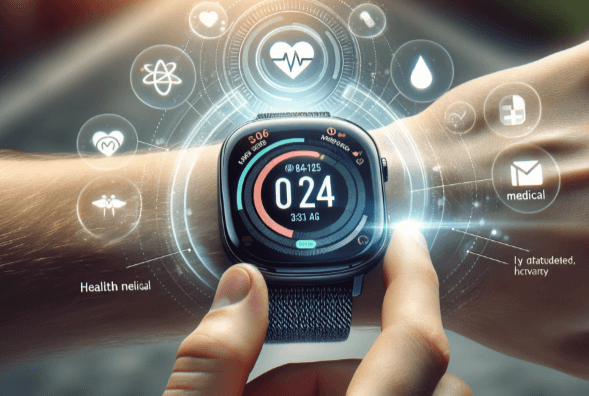What are the new developments in wearable technology, and how are they improving personal health management?

Introduction
Wearable technology has evolved significantly, impacting personal health management like never before. From fitness trackers to smartwatches, these devices now offer more than just step counting. Let’s explore the new developments in wearable technology and how they are enhancing personal health.
The Rise of Wearable Technology
Wearable technology has surged in popularity, with innovations focusing on health monitoring. Devices now include sensors that measure various health metrics, providing users with actionable insights into their well-being.
Key Developments in Wearable Health Technology
1. Advanced Health Monitoring
Modern wearables are equipped with sensors that monitor heart rate, blood pressure, and even blood oxygen levels, offering comprehensive health insights.
2. Continuous Glucose Monitoring
Diabetes management has been revolutionized by continuous glucose monitors (CGMs), allowing users to track their blood sugar levels in real-time without constant finger-pricking.
3. Sleep Tracking and Analysis
Wearables now offer detailed sleep tracking, analyzing sleep patterns and providing recommendations to improve sleep quality, crucial for overall health.
4. Stress Management Features
Devices are incorporating stress management tools, including guided breathing exercises and stress level indicators, helping users manage their mental health effectively.
Impact on Personal Health Management
1. Personalized Health Insights
Wearables provide personalized data, allowing users to understand their health patterns and make informed decisions about their lifestyle and health management.
2. Early Detection and Prevention
With continuous health monitoring, wearables can alert users to irregularities, prompting early medical consultations and potentially preventing serious health issues.
3. Enhanced Fitness Tracking
Fitness enthusiasts benefit from advanced tracking capabilities, including VO2 max estimation and workout recommendations, optimizing their exercise routines.
4. Integration with Health Apps
Many wearables seamlessly integrate with health apps, compiling data into comprehensive health reports, which can be shared with healthcare providers for better medical guidance.
Challenges and Future Prospects
While the advancements are impressive, challenges like data privacy and device accuracy remain. However, ongoing research and development promise even more sophisticated features in the future.
FAQs
What is the role of AI in wearable technology?
AI plays a crucial role by analyzing the collected data, offering personalized health insights and recommendations.
How accurate are wearable devices in health monitoring?
Accuracy varies by device; however, continuous advancements are improving the precision of health metrics.
Can wearables replace regular health check-ups?
No, wearables are supplementary tools that provide valuable insights but do not replace professional medical advice.
What are the privacy concerns with wearable technology?
Data security and privacy are major concerns; it’s essential to choose devices with robust data protection policies.
How do wearables help in stress management?
Many devices include stress tracking and guided breathing exercises, helping users manage stress levels effectively.
Are there any risks associated with using wearables?
While generally safe, users should be aware of potential issues like skin irritation and ensure data privacy settings are properly configured.
Conclusion
Wearable technology continues to redefine personal health management, offering users unprecedented insights into their health and wellness. As technology advances, these devices will play an increasingly integral role in our daily lives, promoting healthier lifestyles and enhancing our understanding of personal health.






